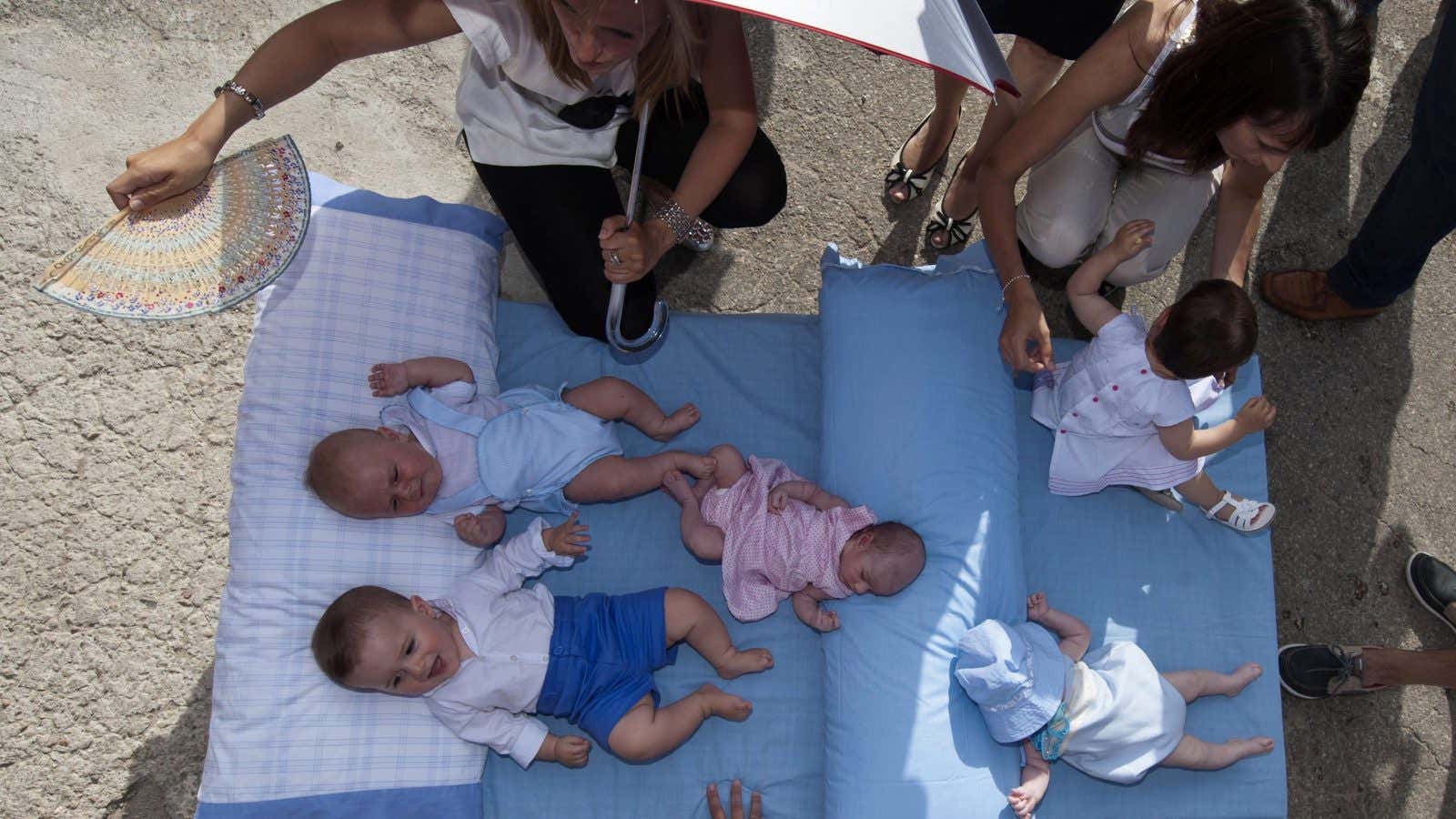Europeans might be getting used to politicians suggesting they have more sex.
The bloc is increasingly experiencing a developed-world malaise: Birth rates are dramatically falling as more women work and choose to have fewer children, and to have them later. Europeans across the continent are having so many fewer babies that national populations from Scandinavia to the Mediterranean are skewing towards the older end of the spectrum, with not enough young, productive people to keep economies thriving and to look after the rest of the aging population.
Spanish women have 1.3 children on average. In 2015, Spain’s death rate outstripped the birth rate, a situation that had previously only happened during wartime:
Edelmira Barreira Diz was appointed as “commissioner for the demographic challenge” last month. This week, she begins working with communities to understand the nature of the problem (link in Spanish). Changing work and gender dynamics are part of that—Spanish women have their first child on average at 32, which is older than the rest of Europe and older than in Japan, which has a well-known shrinking-population problem. But economics are also likely to be part of the mix, in a country that’s been through a grinding recession and where youth unemployment hit 48% in 2015, second only to Greece.
In a nutshell, Spain’s problem is that people aren’t having enough kids to replace themselves, or replenish the areas that lose young people to cities or opportunities abroad (Spanish.) It’s a vicious cycle: Poor economic prospects lead people to have fewer children, or move away; but the lack of young people then makes those problems ever worse.
Spain is the latest country to take action on the demographic issue, and is perhaps doing so more soberly than some of its neighbors. In 2016, Italy announced its first “Fertility Day” with a tone-deaf campaign that included a young woman holding up an hourglass to signify that time can run out to have children. Sweden and Denmark have both seen cheerful drives in the media and initiatives in politics designed to encourage more sex, and consequently more babies.
